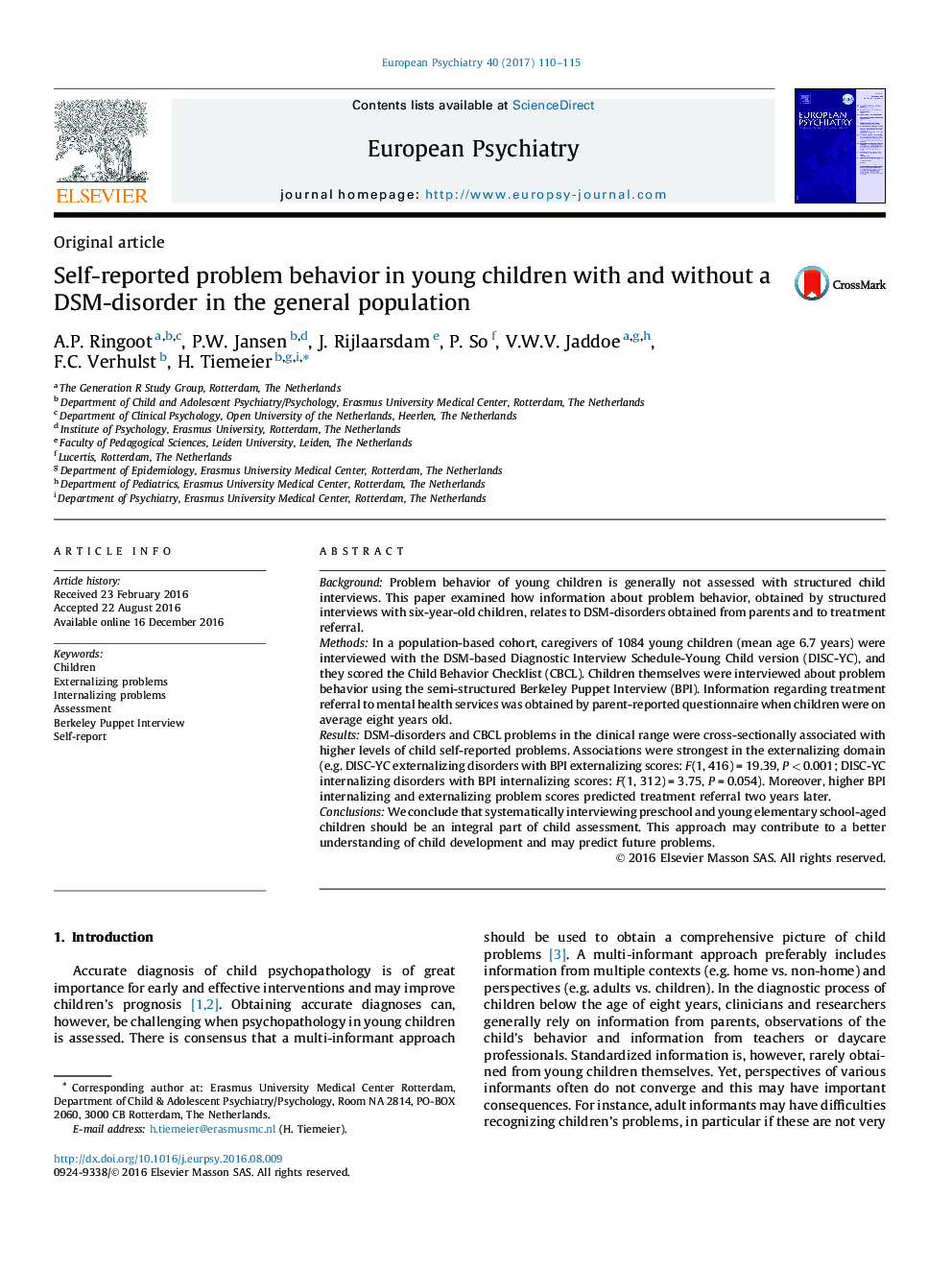| کد مقاله | کد نشریه | سال انتشار | مقاله انگلیسی | نسخه تمام متن |
|---|---|---|---|---|
| 5721605 | 1608050 | 2017 | 6 صفحه PDF | دانلود رایگان |

BackgroundProblem behavior of young children is generally not assessed with structured child interviews. This paper examined how information about problem behavior, obtained by structured interviews with six-year-old children, relates to DSM-disorders obtained from parents and to treatment referral.MethodsIn a population-based cohort, caregivers of 1084 young children (mean age 6.7 years) were interviewed with the DSM-based Diagnostic Interview Schedule-Young Child version (DISC-YC), and they scored the Child Behavior Checklist (CBCL). Children themselves were interviewed about problem behavior using the semi-structured Berkeley Puppet Interview (BPI). Information regarding treatment referral to mental health services was obtained by parent-reported questionnaire when children were on average eight years old.ResultsDSM-disorders and CBCL problems in the clinical range were cross-sectionally associated with higher levels of child self-reported problems. Associations were strongest in the externalizing domain (e.g. DISC-YC externalizing disorders with BPI externalizing scores: F(1, 416)Â =Â 19.39, PÂ <Â 0.001; DISC-YC internalizing disorders with BPI internalizing scores: F(1, 312)Â =Â 3.75, PÂ =Â 0.054). Moreover, higher BPI internalizing and externalizing problem scores predicted treatment referral two years later.ConclusionsWe conclude that systematically interviewing preschool and young elementary school-aged children should be an integral part of child assessment. This approach may contribute to a better understanding of child development and may predict future problems.
Journal: European Psychiatry - Volume 40, February 2017, Pages 110-115